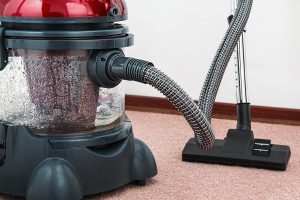 With no end in sight for the spread of COVID-19 globally, advice continues to be provided by governments, scientists and organisations, both to individuals and to business owners. As understanding of the virus and its impact has grown some advice and instruction has changed, however, the need for strict and stringent hygiene has remained a constant feature of all advice given. We can expect to see deep cleans, from jet washing services to deep upholstery cleaning, form a more integral part of this advice. Business owners are responsible for placing the welfare of their employees at the top of their priority list. By scheduling a deep clean it can be possible for businesses to keep their doors open whilst also ensuring that their staff are as safe as possible from contamination.
With no end in sight for the spread of COVID-19 globally, advice continues to be provided by governments, scientists and organisations, both to individuals and to business owners. As understanding of the virus and its impact has grown some advice and instruction has changed, however, the need for strict and stringent hygiene has remained a constant feature of all advice given. We can expect to see deep cleans, from jet washing services to deep upholstery cleaning, form a more integral part of this advice. Business owners are responsible for placing the welfare of their employees at the top of their priority list. By scheduling a deep clean it can be possible for businesses to keep their doors open whilst also ensuring that their staff are as safe as possible from contamination.
The Top Risk Areas within an Office Environment
When the concern is high about passing on a harmful virus, which areas of the office are the riskiest? Places where equipment is stationed that is used by multiple people are certainly high-risk areas. Desk surfaces, telephones, computer keyboards, and such like are all spots where germs and potential viruses can stick around. Bathrooms, kitchens, print rooms and other areas where many people cross over throughout the day are also in the category of high-risk. These are the areas that are focused on when a coronavirus deep clean is carried out. Most of the office layout is covered by these high-risk spots. Hence it is very clear how important overall office hygiene is.
How Does the Virus Present?
All business owners have surely informed themselves of the details of coronavirus and how it presents. Staff need to be instructed that they should self-isolate if they have any of the known symptoms. It is best to be specific about the two main indications of contamination:
- The person will have a high temperature
- The person will have a new, continuous cough
How Is a Deep Clean Carried Out?
Deep cleans are based around the entire area being intensely cleaned at one time. This is different from a regular clean where the work tends to be focused on one area rather than overall cleanliness. It is clear that a deep clean is all about a fast timeframe, especially in the case of confirmed contamination. It is also essential that all methods used for the deep clean are fully reliable when it comes to complete disinfection.
What Is Involved in Electrostatic Deep Cleaning?
All surfaces and equipment are sprayed with electrostatically charged particles in this deep clean method. The particles are positively charged and aggressively stick to surfaces, this enables an end result which is more accurate when it comes to fully sanitising all areas. This method of deep cleaning takes half the time of traditional methods. Hence the method is not only more accessible but also requires fewer operatives. For business owners, this translates to a reasonable price for an intense deep clean.
When Should a Deep Clean Be Scheduled?
If an employee has been diagnosed with coronavirus then a business may very well view the timing as crucial to carry out a deep clean. Businesses may also opt for a deep clean to reduce the risk of contamination within their office. If employees are currently working remotely, the timing is very convenient for a deep clean. This means that staff will return to a working environment where the risk of contamination is lower.
Current Business Advice Related to Coronavirus
Governments are currently advising workplaces not to close but to work remotely where possible. Hence, staff who do to have coronavirus symptoms are able to work from the office, although some businesses may be taking all measures to have them continue remotely. The type of business and the ways available for remote working will much determine how the business moves forward.
What Is on the Horizon?
We may need to get used to coronavirus illnesses being part of everyday life for years to come, according to experts within the field. This will require a higher level of cleanliness requirements for offices. In general, keeping a high level of hygiene in the office environment will help to prevent contamination. This high level should include regular deep cleans which may be scheduled alongside coronavirus risk as it rises and falls.
